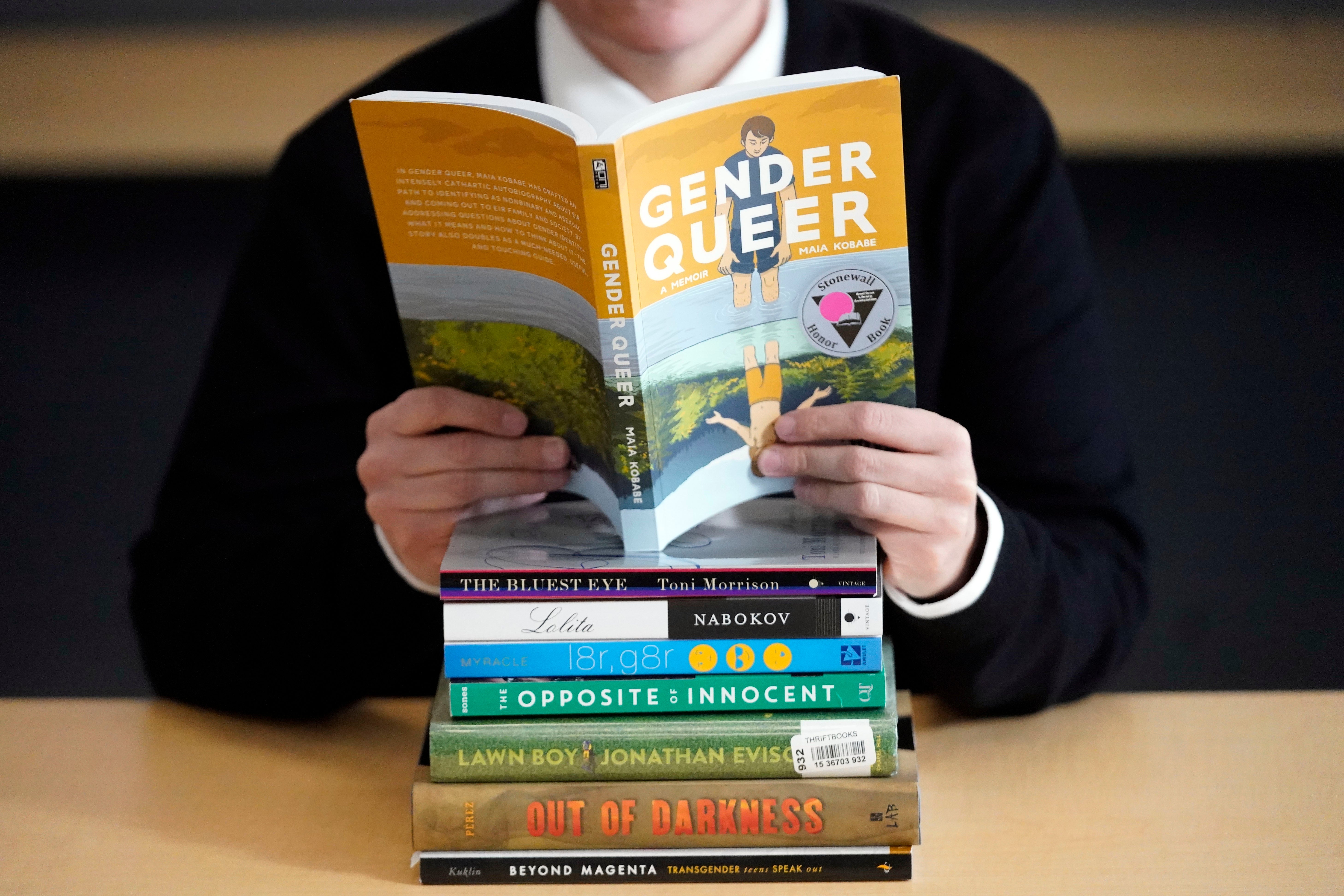Maia Kobabe's 'Gender Queer' tops list of most criticized library books for third straight year
Maia Kobabe’s graphic memoir “Gender Queer” continues its troubled run as the country’s most controversial book, topping the American Library Association’s “challenged books” list for a third straight year

Maia Kobabe’s graphic memoir “Gender Queer” continues its troubled run as the country’s most controversial book, topping the American Library Association’s “challenged books” list for a third straight year.
Kobabe’s coming-of-age story was published in 2019, and received the library association’s Alex Award for best young adult literature. But it has since been at the heart of debates over library content, with conservative organizations such as Moms for Liberty contending that parents should have more power to determine what books are available. Politicians have condemned “Gender Queer” and school systems in Florida, Texas and elsewhere have banned it. Last December, police in Great Barrington, Massachusetts, responded to a complaint from a custodian about the book by showing up and searching for it in an 8th grade classroom.
The ALA released its list Monday, along with its annual State of America’s Libraries Report.
“A few advocacy groups have made 'Gender Queer' a lightning rod,” says Deborah Caldwell-Stone, director of the association's Office for Intellectual Freedom. ”People are trying to shut down conversation about gender identity."
Many books on the ALA’s top 10 snapshot had LGBTQ themes, including the four works immediately following “Gender Queer”: George M. Johnson’s “All Boys Aren’t Blue,” Juno Dawson’s “This Book is Gay,” Stephen Chbosky’s “The Perks of Being a Wallflower” and Mike Curato’s “Flamer.” The list’s other five books all were cited for being sexually explicit: Toni Morrison’s “The Bluest Eye,” Ellen Hopkins’ “Tricks,” Jesse Andrews “Me and Earl and the Dying Girl,” Erika Moen and Matthew Nolan’s “Let’s Talk About It” and Patricia McCormick’s “Sold.”
“These books are beyond the pale for some people simply because they touch upon sex,” Caldwell-Stone says.
In March, the ALA reported that bans and attempted bans in 2023 again reached record highs since the association began tracking complaints in the early 2000s. More than 4,240 works in school and public libraries were targeted, compared to a then-record 2,571 books in 2022.
Many of the books challenged — 47% — have LGBTQ and racial themes.
The ALA defines a challenge as a “formal, written complaint filed with a library or school requesting that materials be removed because of content or appropriateness.” The association bases its findings on media accounts and reports from librarians but has long believed that many challenges go uncounted, or that some books are pulled by librarians in anticipation of protests.
Bookmark popover
Removed from bookmarks